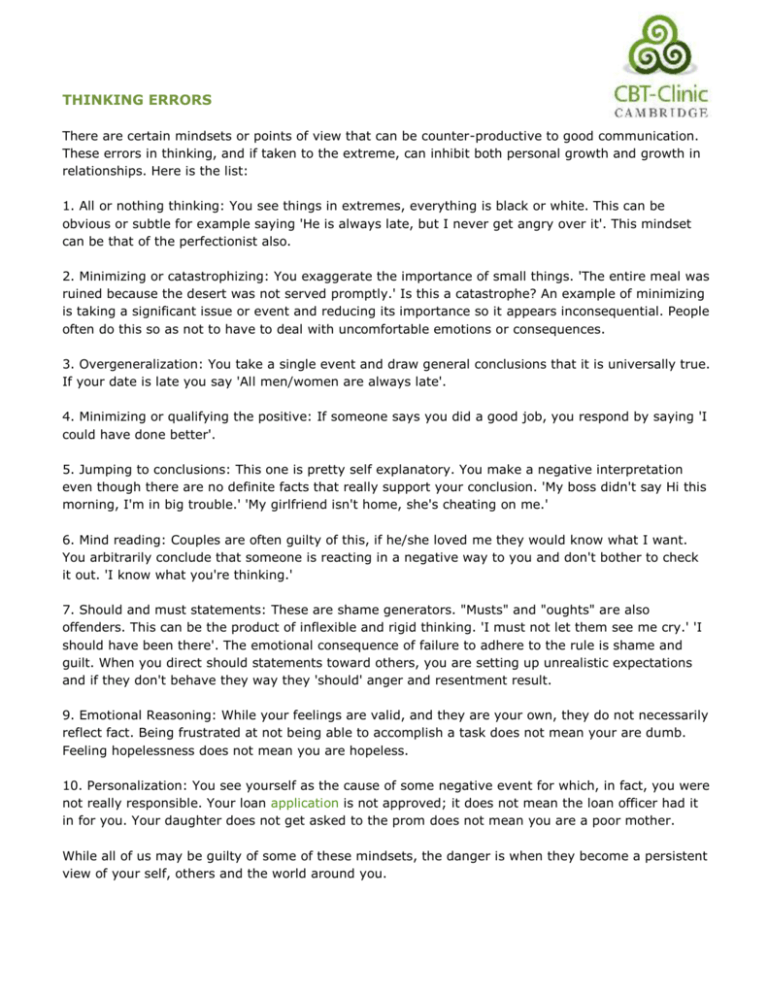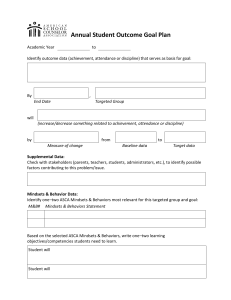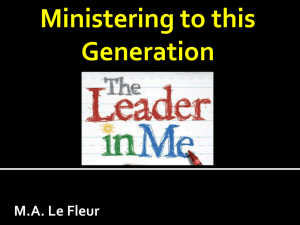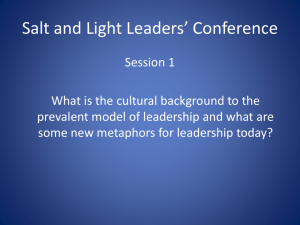Thinking Errors - Cambridge Centre for CBT
advertisement

THINKING ERRORS There are certain mindsets or points of view that can be counter-productive to good communication. These errors in thinking, and if taken to the extreme, can inhibit both personal growth and growth in relationships. Here is the list: 1. All or nothing thinking: You see things in extremes, everything is black or white. This can be obvious or subtle for example saying 'He is always late, but I never get angry over it'. This mindset can be that of the perfectionist also. 2. Minimizing or catastrophizing: You exaggerate the importance of small things. 'The entire meal was ruined because the desert was not served promptly.' Is this a catastrophe? An example of minimizing is taking a significant issue or event and reducing its importance so it appears inconsequential. People often do this so as not to have to deal with uncomfortable emotions or consequences. 3. Overgeneralization: You take a single event and draw general conclusions that it is universally true. If your date is late you say 'All men/women are always late'. 4. Minimizing or qualifying the positive: If someone says you did a good job, you respond by saying 'I could have done better'. 5. Jumping to conclusions: This one is pretty self explanatory. You make a negative interpretation even though there are no definite facts that really support your conclusion. 'My boss didn't say Hi this morning, I'm in big trouble.' 'My girlfriend isn't home, she's cheating on me.' 6. Mind reading: Couples are often guilty of this, if he/she loved me they would know what I want. You arbitrarily conclude that someone is reacting in a negative way to you and don't bother to check it out. 'I know what you're thinking.' 7. Should and must statements: These are shame generators. "Musts" and "oughts" are also offenders. This can be the product of inflexible and rigid thinking. 'I must not let them see me cry.' 'I should have been there'. The emotional consequence of failure to adhere to the rule is shame and guilt. When you direct should statements toward others, you are setting up unrealistic expectations and if they don't behave they way they 'should' anger and resentment result. 9. Emotional Reasoning: While your feelings are valid, and they are your own, they do not necessarily reflect fact. Being frustrated at not being able to accomplish a task does not mean your are dumb. Feeling hopelessness does not mean you are hopeless. 10. Personalization: You see yourself as the cause of some negative event for which, in fact, you were not really responsible. Your loan application is not approved; it does not mean the loan officer had it in for you. Your daughter does not get asked to the prom does not mean you are a poor mother. While all of us may be guilty of some of these mindsets, the danger is when they become a persistent view of your self, others and the world around you.











